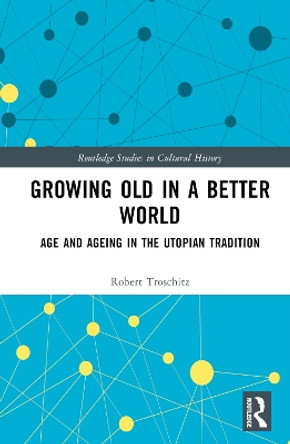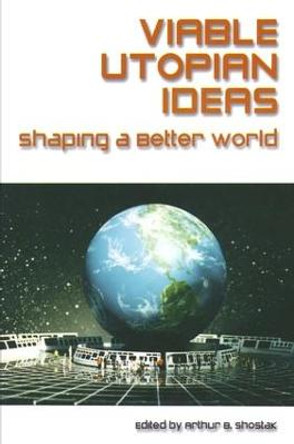Description
About the Author
Peter Roberts is professor of Education at the University of Canterbury in New Zealand. He teaches philosophy of education and educational policy studies. John Freeman-Moir is senior lecturer in the College of Education at the University of Canterbury, New Zealand, where he teaches utopian social theory, sociology of education, and philosophy of education.
Reviews
Roberts and Freeman-Moir (both, Univ. of Canterbury, New Zealand) resist the typical notion of utopia as a perfect world. Their central claim is that utopia is a space in which to imagine better worlds. In chapter 1, the authors provide the reader with a substantial foundation from which to understand their central claim and provide examples within education and educational policy to further understand why utopia is important. Subsequent chapters provide examples in art, literature, and, more broadly, aesthetics in order to demonstrate how the notion of utopia can be understood as an important quest for the possible as opposed to the perfect when considering education and policy. A strength of the book is the wide range of examples used to develop the ideas presented. For instance, the authors use works of fiction (e.g., books by Hermann Hesse and Fyodor Dostoevsky), as well as authors often considered more "academic" (e.g., Iris Murdoch and Paulo Freire) to explain the range of possibilities in their claims about utopia. These entry points and various examples are helpful to the reader less familiar with the ideas and provide multiple opportunities to imagine how utopia could lead to the construction of better worlds. Summing Up: Recommended. General readers, upper-division undergraduate students, graduate students, research faculty. * CHOICE *
[The book] cover[s] interesting and thought-provoking topics of potential use for those working in the theological school classroom. . . .Roberts and Freeman-Moir take the reader through a sweeping survey of topics. * Reflective Teaching *
This is an important book, especially at this current historical juncture, when the indomitable human spirit gasps for air, when the translucent hues of hope seem ever more ethereal, when thinking about the future seems anachronistic, when the concept of utopia has become irretrievably Disneyfied, when our social roles as citizens have become increasingly corporatized and instrumentalized in a world which hides necessity in the name of consumer desire, and when teachers and students alike wallow in absurdity, waiting for the junkyard of consumer life to vomit up yet another panacea for despair. In Better Worlds: Education, Art, and Utopia, the reader will find the most propitious environment for moving forward, a crack in the darkness where light shines through. This outstanding book advances the project of critical education by leaps and bounds. -- Peter McLaren, Honorary Chair Professor and Director of the Center for Critical Studies, Northeast Normal University, China
Better Worlds: Education, Art, and Utopia by Peter Roberts & John Freeman-Moir is a lifetime's reflection by two experienced and reputable scholars on the complex historical and philosophical relationship between utopia (dystopia) and education. It is a book that traverses the notion of crafting experience in William Morris and Dewey and runs the whole gamut of Iris Murdoch, Freire, Dostoevsky and Taoism, and Hermann Hesse to theorize art, creativity and the scholarly life. This book is a wonderful addition to the literature on utopian education and likely to become a classic. -- Michael Peters, University of Waikato
Better Worlds: Education, Art, and Utopia is a timely and welcome consideration of the place of utopian thinking in educational theory and practice. In a wide-ranging and erudite exploration of utopian thinking in philosophy, the social sciences, art, literature and education, Peter Roberts and John Freeman-Moir make a compelling case for the central place of such thinking in educational theorizing. Their focus in not on perfect worlds, but - as their title suggests - on better ones. Through a series of detailed studies of authors such as Dewey, Dostoevsky, Hesse, Freire and Murdoch, and of works of philosophy, art, and literature, they argue for the enduring importance of imaginative contemplation of better worlds than the actual one, and of the role of education in promoting utopian thinking, acting, living, and social organization. In doing so they demonstrate how education can help us both bring about a better world and avoid a worse one. This is a wise, realistic and yet visionary book. Perhaps most importantly, it is a profoundly hopeful one as well. -- Harvey Siegel, University of Miami
Book Information
ISBN 9781498510851
Author Peter Roberts
Format Paperback
Page Count 196
Imprint Lexington Books
Publisher Lexington Books
Weight(grams) 318g
Dimensions(mm) 230mm * 148mm * 12mm











